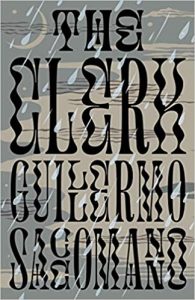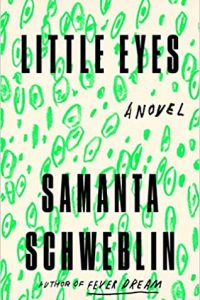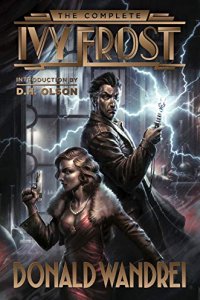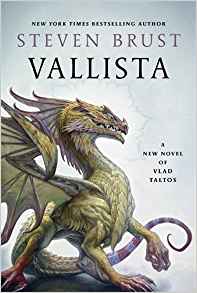Ian Mond Reviews The Clerk by Guillermo Saccomanno
 The Clerk, Guillermo Saccomanno (Open Letter 978-1-948-83025-6, $15.95, 138pp, tp) September 2020.
The Clerk, Guillermo Saccomanno (Open Letter 978-1-948-83025-6, $15.95, 138pp, tp) September 2020.
Going back to the country’s independence in 1816, Argentina has been a rich source of genre and genre-adjacent fiction. Most will be aware of Jorge Luis Borges – the father of magical realism – but there’s also Silvina Ocampo, Carlos Gardini, and Angélica Gorodischer, whose 1979 mosaic novel Trafalgar was finally translated into English in 2013 thanks to Small Beer Press. The last few years have seen a resurgence in contemporary Argentine speculative fiction, with writers such as Cesar Aira, Martin Felipe Castagnet, Pola Oloixarac, Mariana Enriquez, Agustina Bazterrica, and Samanta Schweblin producing a slew of critically acclaimed novels and short fiction. This month I can add two more writers to that list: Guillermo Saccomanno and Dolores Reyes.
Saccomanno isn’t so much a new kid on the block as, more accurately, a peer of Gorodischer and Gardini, writing screenplays and novels for close to 50 years. However, as is often the case with literary translations, it’s only recently that his work has appeared in English with Open Letter publishing Saccomanno’s 11th novel, Gesell Dome in 2016 and then following up three years later with 77. Both books were translated by Andrea G. Labinger, who also brings her talents to Saccomanno’s dystopian novel The Clerk. The story takes place in an unnamed city where armoured helicopters blanket the night sky; where terrorist attacks are a daily occurrence; where the streets are clogged with the homeless, gang members, rabid cloned dogs, and drug-addled teenagers; and where a person’s employment is an hour-by-hour proposition. Our titular protagonist, keenly aware that the Company could fire him at a moment’s notice, has made an art-form of being submissive. As such, we find the clerk alone in the office late one night ruminating over who he is, desperate to convince himself that his outward passivity isn’t indicative of his true nature:
Sometimes he wonders whether, in order to have his colleagues think him harmless, he hasn’t had to convince himself of the same thing first…. At the same time, he thinks that anyone like him, with the talent to think of two contradictory ideas simultaneously, is not just superior to the rest but also a person to be feared, someone who, when least expected, can commit an act of rage that will leave the others to confront their own cowardice.
The clerk’s belief that he is not a man meek of character is, however, put to the test when he begins a torrid love affair with the boss’s secretary in the full knowledge she is also the boss’s mistress.
Saccomanno’s outlandish dystopia, with its cloned dogs, zombie kids, and bombings so regular they’re baked into everyday life, is reminiscent of Terry Gilliam’s Brazil. It’s a grotesque world, typified by casual violence and inhumanity, whether it’s the bats that are sliced and diced by low flying ‘copters or the savagery with which employees are removed from their desks, or the way people, like sheep, return to work moments after a nearby bombing. And, of course, there’s the awful treatment of the itinerant and homeless, whose lives have no value, whose body parts litter the street after an attack – the one element of Saccomanno’s nightmarish world that feels all too real, all too timely. There’s an extraordinary soliloquy in the latter part of the novel that brings every aspect of this dystopia – the bizarre, the brutal, the tragic – into sharp relief. Here’s a taste:
Three A.M. on all the clocks in the city. Three A.M. in the watery streets. Three A.M. in the doorways where the homeless lie. Three A.M. in the subway stations. Three A.M. in the concrete plazas. Three A.M. on the deserted highways. Three A.M. in the flaming embers of the last attack.
Regarding the clerk, Saccomanno presents us with a hateful, miserable, wretch of a man, a caricature whose capacity for delusion seemingly has no ceiling. The clerk is abused by his brow-beating wife (a “lump with horsey features”) and loathes his children (a “litter of obese, ill-behaved brats”). He does have a soft spot for the runt of the pack, whom he names “El Viejito,” but only because the child’s debilitating albinism reminds the clerk of his own limp. He’s also a misogynist, not entirely surprising considering his relationship with his wife, but it’s truly shocking how quickly he considers strangling the secretary. Given all this, we shouldn’t want to spend any time with the clerk, but we do because we come to recognise that he is a product of a toxic society. Just as partisan politics has turned the people we love into brutish parodies of themselves, the clerk, broken by an environment where ruthlessness is a form of currency, can only fantasise about maturing into a stronger, more courageous, more confident version of himself. For all the extremes of Saccomanno’s world and his protagonist, The Clerk is a remarkable novel about how cruelty, whether it’s social, economic, or political, dehumanises us all.
This review and more like it in the December 2020 issue of Locus.
 While you are here, please take a moment to support Locus with a one-time or recurring donation. We rely on reader donations to keep the magazine and site going, and would like to keep the site paywall free, but WE NEED YOUR FINANCIAL SUPPORT to continue quality coverage of the science fiction and fantasy field.
While you are here, please take a moment to support Locus with a one-time or recurring donation. We rely on reader donations to keep the magazine and site going, and would like to keep the site paywall free, but WE NEED YOUR FINANCIAL SUPPORT to continue quality coverage of the science fiction and fantasy field.
©Locus Magazine. Copyrighted material may not be republished without permission of LSFF.








